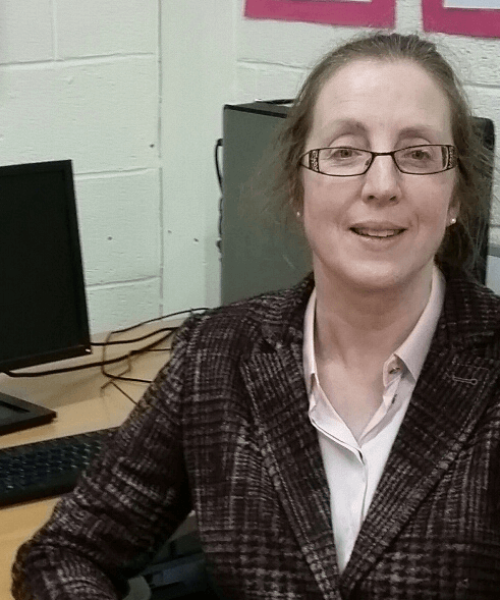“That is part of the beauty of all literature. You discover that your longings are universal longings, that you’re not lonely and isolated from anyone. You belong.”
English
Mission Statement
As teachers of English, we aim to develop in students:
- A mature and critical literacy to prepare them for state examinations and for the responsibilities and challenges of adult life.
- A respect and appreciation for language and a competence in a wide range of skills, both oral and written.
- An awareness of the value of literature in its many forms for enriching their perception, for enhancing their sense of cultural identity, and for creating experiences of aesthetic pleasure.
Develop and encourage student learning in:
- Language
- Literature
- Oral and aural skills
- Reading and written skills
- To prepare for state examinations.
Subject Aims
The essential aim of teaching English at Senior Cycle is to initiate students to enriching experiences with language, so that they become more adept and thoughtful users of it, more critically aware of its power and significance in their lives.
The syllabus builds on the aims of the Junior Certificate English syllabus, which emphasizes the development of a range of literacy and oral skills in a variety of domains; personal, social and cultural. In the Leaving Certificate course students will be encouraged to develop a more sophisticated range of skills and concepts. These will enable them to interpret, compose, discriminate and evaluate a range of material so that they become independent learners who can operate in the world beyond Bailieborough Community School, in a range of contexts.
English at this level must excite students with aesthetic experiences and emphasise the richness of meaning and recreational pleasure to be encountered in literature, and in the creative play of language. Students should be engaged with the voice of literature, learn to dialogue critically with it, and so come to understand its significance and value. An English course at Leaving Certificate must also be wide ranging enough to accommodate, not only vocational needs and further education, but also the lifelong needs of students and the language demands, both oral and written, that are placed on them by the wider community.
The skills acquired for Junior Certificate are further developed to meet the challenges of the Leaving Certificate course. Literacy and oral skills are further developed in a variety of domains – personal, social and cultural. This enables them to interpret, compose, discriminate and evaluate the variety of texts they encounter. Richness and meaning, recreational pleasure and the creative play of language are all encountered at senior cycle. Creativity in expression is encouraged. Vocational use of language is explored.
Methodologies:
In the English department we use a number of different methodologies to meet our students’ individual needs and abilities. Some of these include; brainstorming, group work, individual study, chalk and talk, presentations, role play, hot seating, guest speakers, DVDs, pair work, projects, text rich environments, key word charts, etc.
Assessment:
Assessment, teaching and learning are inextricably linked, as each informs the other. Assessment for learning is a central component of the English Department’s teaching and learning strategy. Assessment for learning provides students with information and guidance so they can plan and manage the next steps in their learning. Some assessment for learning strategies employed in the classroom include in-depth analysis of students’ assignments and detailed feedback, self-assessment, peer assessment and effective use of questioning.
Students will sit their Leaving Certificate at the end of the two year senior cycle. Prior to this they will sit house exams (twice yearly at Christmas and summer) and mock examinations in February of their final year. They will also sit class tests at the discretion of their teachers throughout their two years at senior level.
Career Prospects:
Studying English endows students with many different skills, skills that prospective employers value highly. These skills include communication, research, editing, creativity, organisation and writing skills. Some of the career options available to English graduates include; writer, teacher, librarian, journalist, editor, proof-reader, copywriter, public relations consultant.

